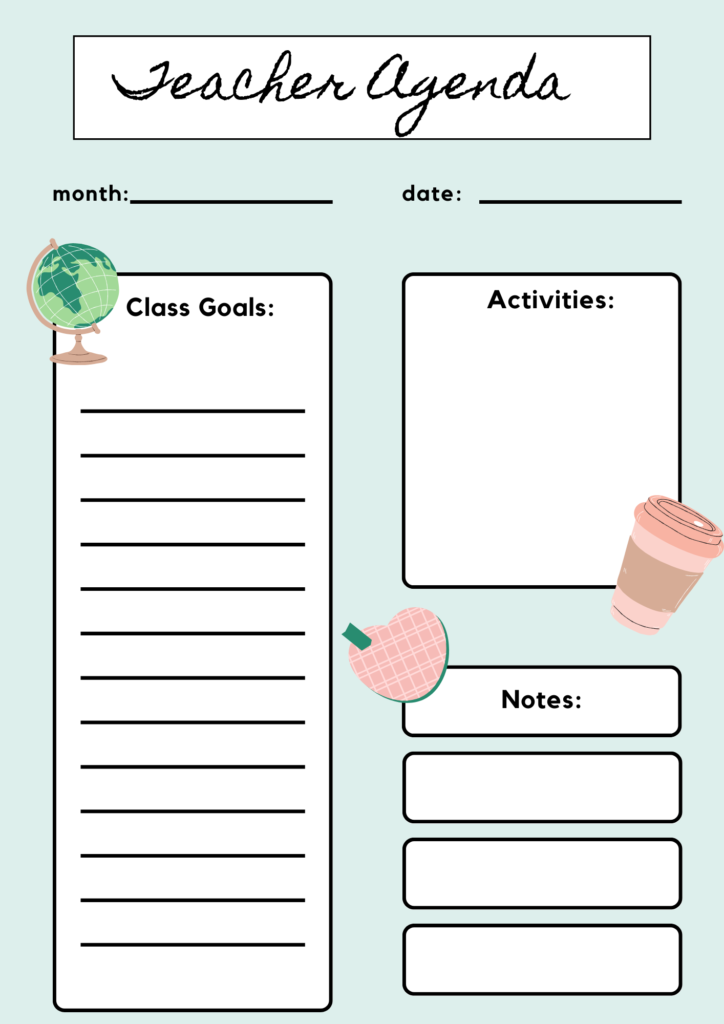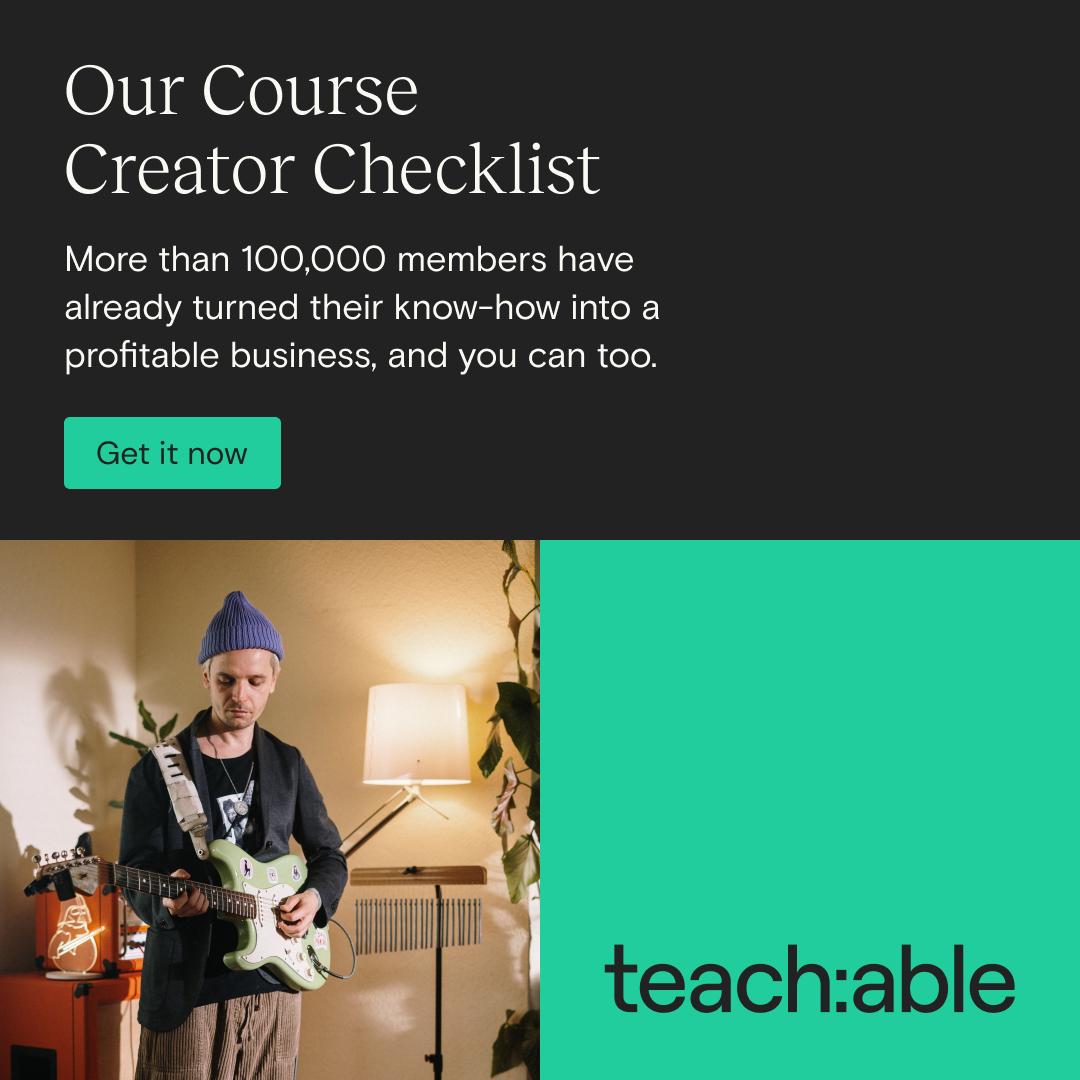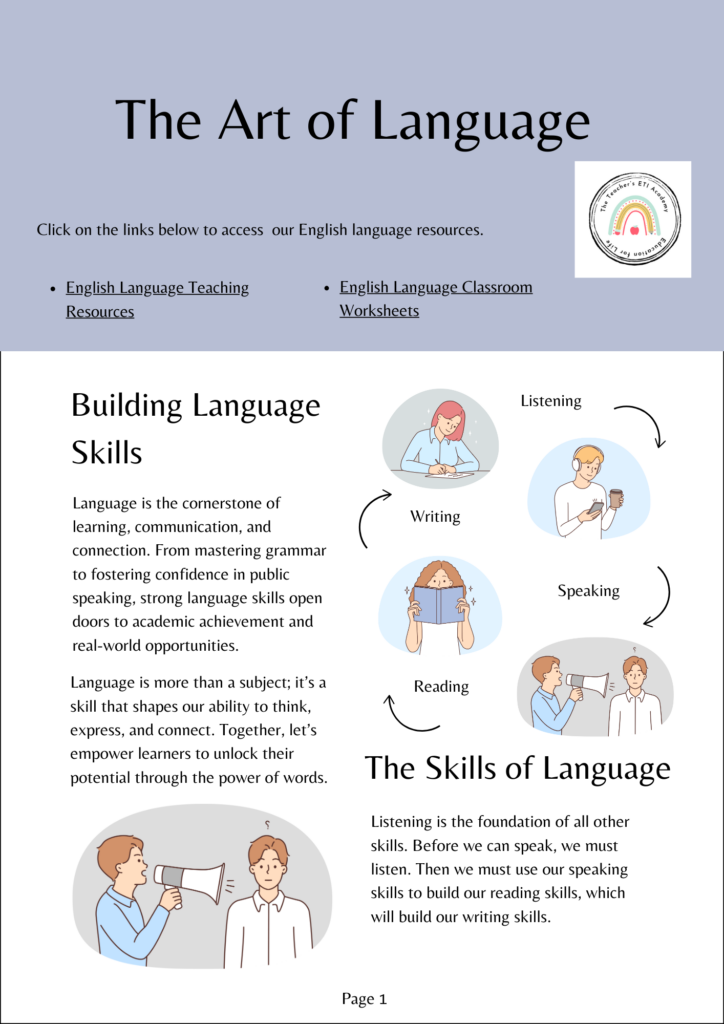5 Important Tips for PreService Teachers
The ETI Academy provides 5 important tips for preservice teachers as a means of support when they decide to begin their teaching career.
Starting your journey of becoming an educator is an exciting and powerful venture, but pre-service teachers often find themselves overwhelmed with diverse challenges and opportunities.

In today’s ever-evolving classrooms, certain best practices can significantly enhance the effectiveness of pre-service teachers.
Note: teachers in the training stages are commonly referred to as pre-service teachers.
In this article, we will look into five basic but important best practices that aspiring educators can incorporate into their approach, ensuring a strong foundation for success in the current educational landscape.
These practices include a blend of pedagogical strategies, technology integration, and interpersonal skills that come together with the demands of today’s diverse and dynamic learning environments.
The advice I, as your author, share comes from my own experiences gained over the years of teaching.
Tips for Preservice Teachers: Editable Teacher Agenda
The ETI Academy offers a wide range of products through our TpT store that helps teachers start the day off right by organizing their day through agendas. Explore this editable teacher agenda teachers can laminate and change as needed.
Click to view our selection of digital products that help support new teachers with their everyday planning
If the classroom may not seem where you want to be, but teaching is still your passion, consider joining the Teach:able community.
Teach With Teach:able
This blog contains affiliate links to highlighted websites and/or resources. By clicking on the link and making a purchase we may earn a small commission at no extra cost to you. Click here for full disclosure.
Teach:able offers a dynamic community where aspiring educators can connect with experienced mentors, collaborate with fellow pre-service teachers, and access a wealth of curated teaching resources.
This platform serves as a bridge between theory and practice, providing a space for pre-service teachers to engage in insightful discussions, gain practical insights, and stay updated on the latest trends in education.
Joining Teach:able is a proactive step for pre-service teachers to enhance their teaching skills, foster a sense of community, and embark on a journey of continuous growth and learning within the field of education.
Before teachers get into the hard work of teaching, it’s important to consider mental health – which is closely tied to teacher self-efficacy and identity.
You can see how I created my school with Teach:able here.
Tips for Preservice Teachers: Master Any Teaching Environment (Online or In-person)
First year teachers who had to begin their teaching careers teaching online were warriors ready to fight unprepared in more than one sense of the word!
However, those determined to win the battle against “learning loss” in the online environment came out on top!
There has been much debate over whether teaching online leads to “learning loss” and that it is not a teacher’s first choice when it comes to teaching.
We do not intend to go into this debate in this article, but instead focus on inspiring pre-service teachers.
Choice in life decisions is important, and now we have teachers who may prefer to consider teaching online. Others may not prefer to teach online and that should be respected.

I believe that the right teachers in education willingly make the choice to put the needs of others before their own.
This means that in which ever class environment they decide to teach, the environment should not impact on HOW they teach or WHY they teach.
If a teacher is amazing in the in-person classroom, s/he will continue to be amazing in the online classroom. It’s not the environment that makes the teacher, it’s the teacher that makes the environment.
What then makes for an “amazing” teacher in the classroom? This is the teacher that students will favor because of how valued they feel and the knowledge they gain by being in the presence of this teacher.
Teacher Identity in the Online Clasroom Video
As part of building teacher confidence, we look at teacher identities, and how teachers can recognize challenges to their teaching in any classroom
By building their confidence, teachers can also begin to build on their identity.
Teacher identity refers to the unique combination of roles, beliefs, values, and experiences that shape an individual’s sense of self as an educator.
It includes the personal and professional aspects that teachers bring to their roles in the classroom, influencing their teaching styles, interactions with students, and overall approach to education.
Watch the video below on how the online classroom can impact on teacher identity. If you enjoyed this video, please like it, and subscribe to our YouTube channel: The ETI Academy.
Teacher identity is a construct often shaped by ongoing reflections, experiences, and the broader educational context.
Understanding and embracing one’s teacher identity is essential for effective teaching, as it informs instructional decisions and interactions with students, contributing to a positive and impactful educational experience.
Building Teacher Efficacy
Efficacy is the belief in one’s own abilities to perform tasks in a way that is expected and that they are happy with.
Teacher efficacy therefore, focuses on the task of connecting with students to be able to teach and inspire.
Pre-service teachers mindful of their efficacy should be able to strengthen the components we discuss as they gain experience in their teaching career.
Teacher efficacy is often the “make” or “break” factor that teachers continually face with their teaching careers.

Click here to visit our post dedicated to sharing our “teacher thoughts” when it comes to important policies that may affect, and help improve teacher efficacy in the classroom.
It’s safe to admit that first year teaching is not what most expect it to be and it can be quite overwhelming and intimidating when entering the classroom for the first time.
Five Important Points To Building Teacher Efficacy
Here now are the five important points pre-services teachers need to consider when looking to build their confidence and efficacy in the classroom.
When used correctly, these points are guaranteed to allow a teacher to enjoy a happy, successful, and long-lasting teaching career.
I. Teacher attitude and Personality (It Matters)
In teaching, a good portion of our duties, roughly 40%**, is passing on the knowledge to students in order for them to succeed, however that’s not the hard part. The other 60%** is convincing them to listen to you.
**Note: The percentage statistics mentioned above are meant for entertainment purposes and not a scientific approach to teaching.
Students in today’s classroom reflect what society thinks is acceptable. You need to be aware of this as it helps in dealing with questions as well as behavior issues in today’s classroom.
A proper attitude towards convincing students to listen to what you have to say, means that your personality is one that is easy to get along with, and is willing to be funny, and transparent with students.

Comedic timing when used properly can bring much amusement, and comfort to both students and teachers in the classroom.
Teachers are human, and that means they will sometimes make mistakes. When mistakes by the teacher happen, it is better to admit it and correct the mistake, than to ignore or deny it.
Trust me, students will appreciate you more for your honesty, and will connect more to you as a teacher.
Click here to read more on how we believe humor benefits teaching and learning.
II. Teacher Readiness (Always, ALWAYS be Prepared)
“Expect the unexpected” is a phrase made popular in education, along with the phrase “take everything with a grain of salt”.
Why salt? It seems to be the “non-medical” cure for most health problems and now educational problems as well.
Formulating a plan for anything you do it is smart, and important, and teachers must admit that lesson plans do serve a purpose, which is to guide the energy needed to maintain a high and lasting interest in the topic being discussed.
However, there are times when unexpected events occur during class (say a student who vomits unexpectedly) and that means plans quickly need to change and teachers need to take a new course of action.
It may not happen, but just know that it could, and know your classroom well enough to formulate a back up plan!

This also applies to teachable moments in the class. The lesson plan you formulate is a guide, but if there is an opportunity to explore teachable moments, and how it connects to the lesson, then teachers should be encouraged to take this opportunity.
Teachable moments are usually unplanned but they come up in ways to enhance understanding or open dialogue.
III. Time Management (Be aware at all times!)
Now this is not an invitation to stare at the clock in the classroom, but from time to time be aware of how much time you allow for each activity during class.
As part of good classroom management strategies, there should be a clear beginning, middle, and end to the class so that students are not even aware of the time and ask the question;
“Is class already done?” If your students don’t want the class to end, you could count that lesson as a success!

On the other hand, if your students are constantly looking at their own clocks, or the classroom clock, or making it known that they find the class boring by asking how much time is left in the class, than, you can say that it is not a class either of you want to remember.
IV. How To Ask Thought-Provoking Questions
As a teacher, you should try not start a lesson by telling the students right away what page to turn to. By doing this, you will have already lost half their attention. Instead find interesting ways to begin your class by asking “thought provoking” questions.

If you are an economics teacher, you could start by ask a question similar to “Would you rather lose your mobile phone or your wallet?” and then go in to the lesson, keeping in mind to not let the time slip in this high energized debate.
V. Seek Support from Other Teachers
Once you get to the teacher’s staff room you can find that most teachers will offer you support in dealing students and all the other wonderful stuff that goes along with being a teacher.
On this website we have a blog space dedicated to teachers and several posts in support of teachers and teaching.

We encourage you to have look and wish you the best of luck with starting your teaching career. So don’t wait check it out!
Related Topics
Connect to our other pages as you navigate through our website. Explore what these pages have to offer you and you will be glad you did!
- ELA Oral Presentation Rubrics for the Classroom
- How to Build Effective Classroom Management Strategies
- What Are Formative Assessments in Education?
- Effective Lesson Plans Checklist for Teachers
- The Main Focus of Teaching Educational Strategies
- How Educational Videos Help Students Learn
- Why Teachable is Good for Teachers
- Professional Development Videos for Teachers
Join Us Today!
Final Thoughts…
Teaching is one career that requires constant growth in learning and adaptability. Teachers are life long learners, and those who recognize this will find that they will enjoy a long, happy, and successful career serving others.
Share Your Thoughts!
Teachers we would like to hear from you! Let us hear your thoughts on teaching and what things you recommend new teachers should come know about teaching! Leave us your thoughts in the comments below! Connect with us on social media!








